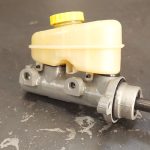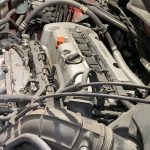The master cylinder is a crucial component of a vehicle’s braking system, responsible for transmitting the force from the brake pedal to the brakes themselves.
When the master cylinder begins to fail, it can significantly impact the performance and safety of your vehicle’s braking system.
Recognizing the signs of a failing master cylinder is essential for timely repairs and avoiding potential brake failure. In this article, we will explore the common symptoms of a bad or failing master cylinder.
By understanding these signs, you can take proactive measures to address the issue and ensure the continued reliability and safety of your vehicle’s braking system.
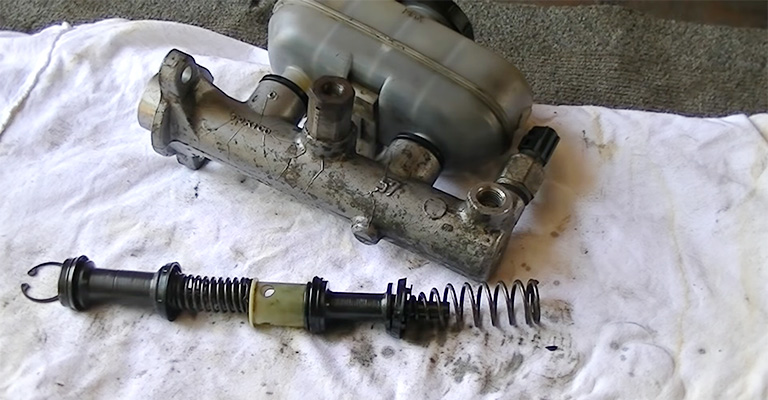
Bad Master Cylinder Symptoms
Your brake system depends on your brake master cylinder. As brake fluid is pushed through this valve, brake pads are pressed onto the rotors by the calipers.
As a result, it contributes greatly to stopping the car when you apply the brakes. While on the road, any problem with the master cylinder can lead to an accident.
In the event that one fails, odd symptoms may arise, making diagnosis difficult. You should be aware of the following symptoms of master cylinder failure:
Inconsistent Brake
The brakes can feel fine one minute and lose braking power the next when the master cylinder begins to fail.
Fluid leaks from the seals within the cylinder, causing the pedal to feel firm at first but loses stability; it sinks towards the floor, feeling spongy.
Poor Braking
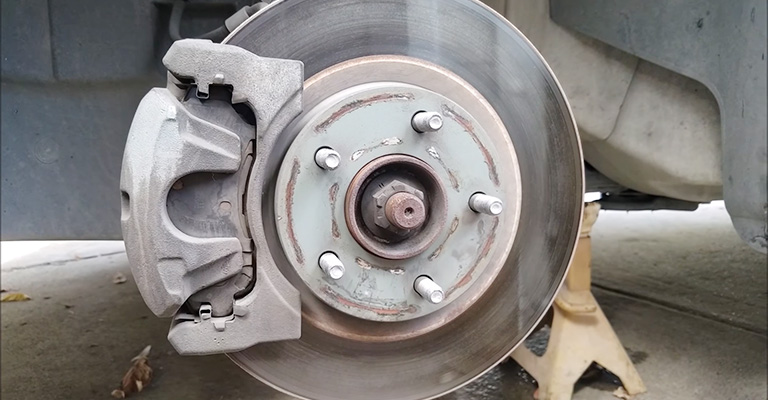
When your car’s brakes go out, you will likely notice your car doesn’t stop as well as it should because it will usually only happen to the front or back brakes at once. There is a good chance that your master cylinder may be the cause of only half your brakes working.
The brake Pedal Sinks Or Feels Spongy
The brake pedal can become spongy or soft due to a leak in the system, which can lead to brake failure.
In most cases, sinking brake pedals indicate that fluid is being pushed out of the brake system.
When the pedal feels spongy, air is present in the lines. In either case, your car’s brakes may be affected.
No Brakes
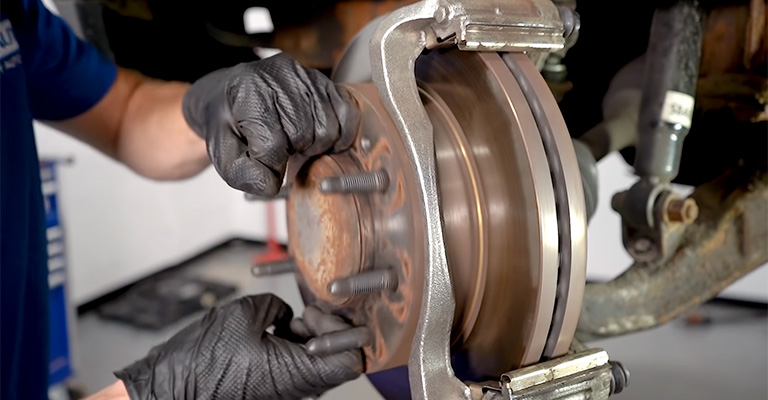
Brakes that don’t work at all are the most obvious symptom of a bad master cylinder. It’s a pretty rare condition.
Anything made in the last half-century has an internal master cylinder, which is the hydraulic pump that presses your brake lines during braking.
A front brake or a back brake will usually go out first, but not both at the same time.
Grinding Noise When Brakes Are Applied
When you apply the brakes, your car may also make a grinding sound, which could indicate a bad master cylinder.
Not the master cylinder itself, but worn brake material is the source of the noise. Possibly, the brakes are under more pressure than normal, causing them to wear out prematurely.
Leaks
The master cylinder needs to be replaced if you notice brake fluid leaking from the back of the cylinder against the firewall, brake booster or down the firewall inside the car.
It will eventually run out of fluid if it leaks, leaving you without at least half your brakes. In addition, it allows air to enter the system, making the brakes feel spongy.
You may be able to regain firmness by pumping the pedal a couple times, but it will usually not last very long.
Brake Fluid Gets Contaminated
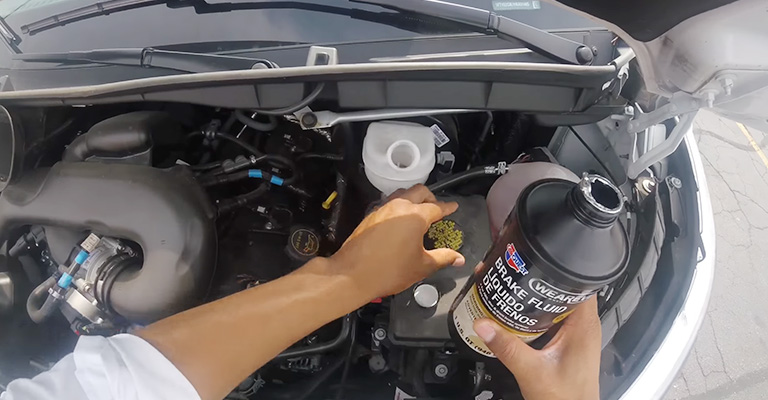
You might have a problem with your master cylinder if your brake fluid becomes contaminated. Continuous use wears out and breaks down rubber seals on the master cylinder.
This will result in contaminated brake fluid. A damaged seal causes the cylinder to be unable to hold fluid or brake pressure properly, resulting in a mushy brake pedal.
Check Engine Light
Any malfunctioning part of the engine is detected by the sensors that are connected to the check engine light. The problem needs to be diagnosed by an expert when it comes on. Immediately take action if the master cylinder is malfunctioning.
Car Pulls To One Side When Brakes Are Applied
A malfunctioning master cylinder could also cause the car to pull to one side when the brakes are applied. When the brakes aren’t getting equal pressure on both sides, the car is pulled in one direction or another by the brakes.
How To Deal With A Bad Master Cylinder?
Master cylinders that are bad should be replaced as soon as possible. Your brakes can fail if you have a bad master cylinder, which is extremely dangerous.
Your car should be taken to a mechanic if you experience any brake problems, or you can replace the master cylinder yourself.
If you choose to replace the master cylinder by yourself, it won’t take more than a couple of hours.
Suck any remaining fluid from the reservoir and crack the brake lines with a wrench while the parking brake is set, and the transmission is in park.
In addition to removing all the mounting bolts, brake lines, sensor connectors, and any other parts connected to the master cylinder, you should also remove all the components attached to it.
After unclipping the piston rod from the brake booster, you need to remove the brake booster.
After installing the new brake master cylinder, fill it with brake fluid. Make sure that the brake fluid you use matches the specifications on the reservoir cap or in your owner’s manual, and that the container you use is new.
The brakes will need to be bled at each wheel once the air is installed, making sure the reservoir does not empty.
The Bottom Line
There is no doubt that a spongey, or even sinking, brake pedal is one of the most common symptoms of a problematic brake master cylinder.
It is also common for brake fluid to leak from a faulty cylinder, leaving tell-tale fluid puddles underneath your vehicle.
If the part starts to fail, brake performance may also be compromised. You should take braking issues seriously.

